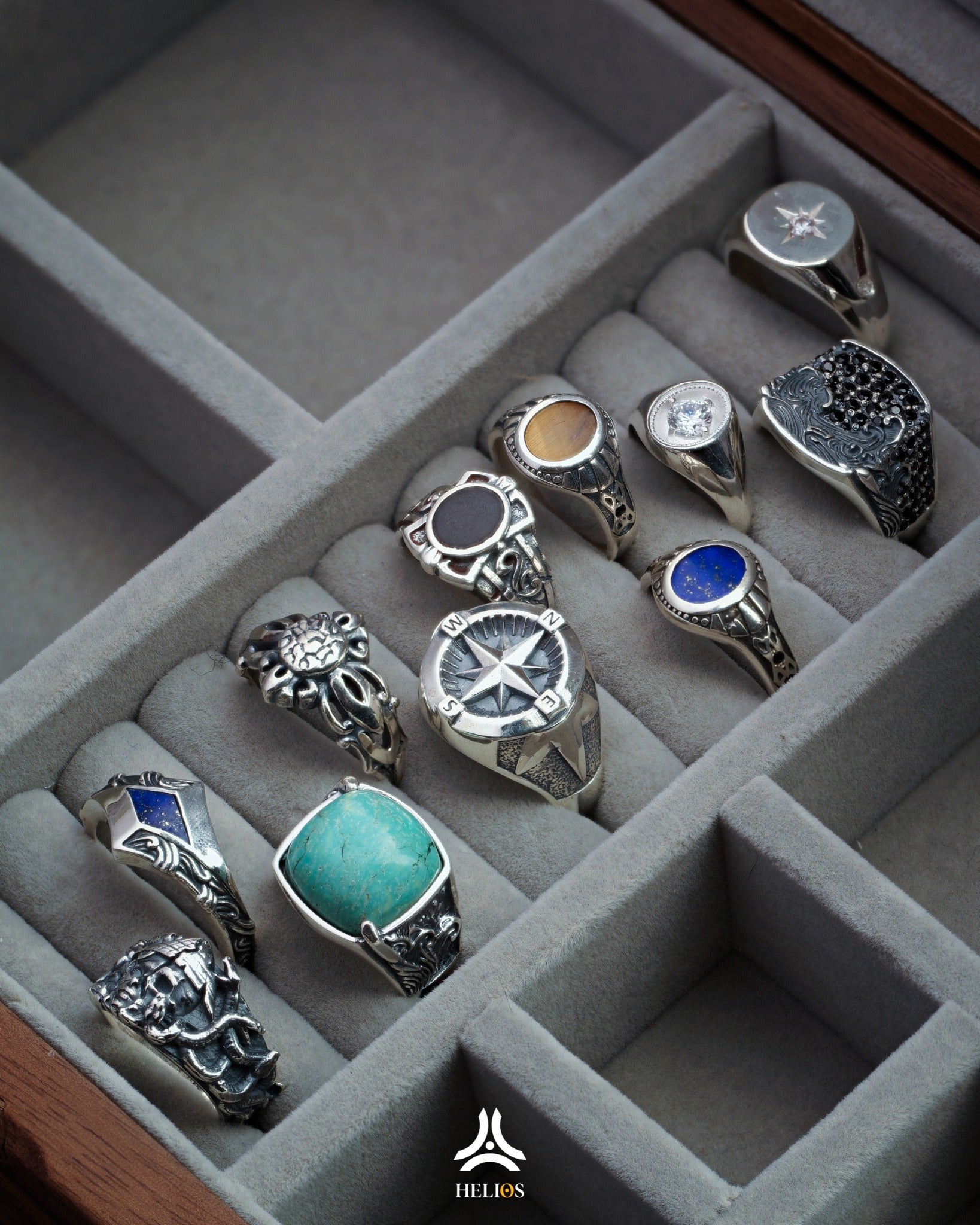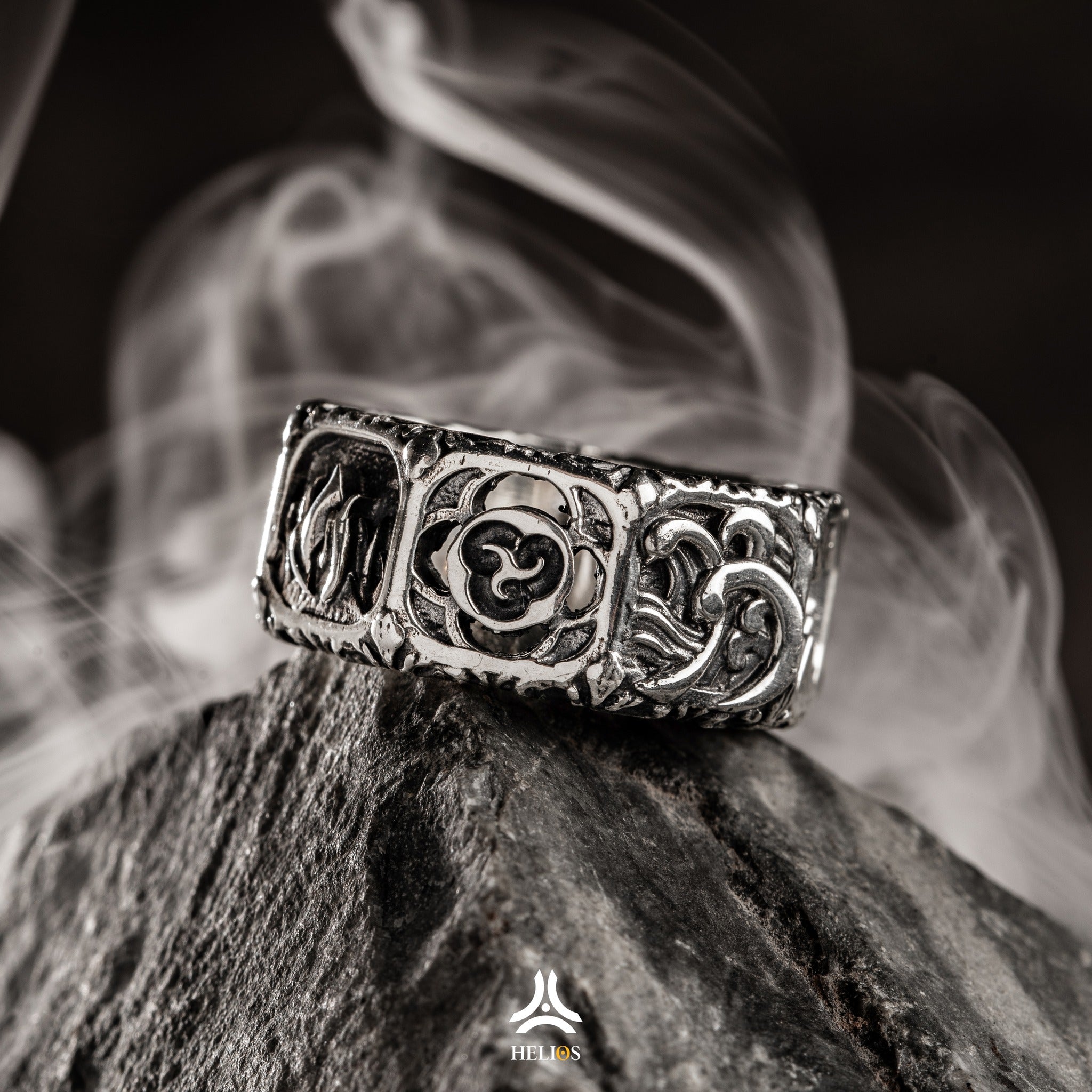Men's earrings have become a popular fashion accessory over the years, and one of the key factors to consider when choosing the right earrings is the metal used. Different metals can offer various benefits and drawbacks, and selecting the right metal can be crucial for achieving the desired look, comfort, and durability. In this article, we will explore some of the most common metals used for men's earrings, including their properties, advantages, and disadvantages, to help you determine which metal is best for you.
1. Sterling Silver Earrings for MenSterling silver is one of the most popular metals used for men's earrings. It is known for its durability, versatility, and affordability, making it an excellent choice for both casual and formal occasions. However, it can tarnish over time, requiring regular cleaning and maintenance.

2. Gold Earrings for Men
Gold is a timeless metal that exudes luxury and elegance. It comes in various shades and carats, offering a wide range of options for different preferences and budgets. However, gold earrings can be more expensive than other metals, and lower carats may not be as durable as higher ones.
Since solid gold is too pliable, only 14k or 18k gold is suitable for body jewelry. At these purities, they will be mixed with other metals to improve their durability and biocompatibility. Not all gold is the same - some white gold, for example, is mixed with nickel to achieve its silver tone - so you need to be aware of what’s in your gold, especially if you have metal sensitivities. While 18k gold can be acceptable for body piercings, 14k gold is preferred since it’s more durable.

3. Platinum Earrings for Men
Platinum is a rare and precious metal that is highly valued for its durability, hypoallergenic properties, and non-tarnishing nature. It is an excellent choice for men with sensitive skin or allergies to other metals. However, platinum earrings can be more expensive than other metals, and they may not be as widely available.

4. Titanium Earrings for Men
Titanium is a lightweight and durable metal that is becoming increasingly popular for men's earrings. It is hypoallergenic, corrosion-resistant, and comes in various colors and finishes, making it a versatile and practical choice. However, titanium earrings can be more expensive than other metals, and they may require special tools and techniques for resizing or repairing.
Titanium is quickly becoming one of the most popular materials for piercing jewelry, especially for starting jewelry. It’s inexpensive, durable, light, and it has a nice silver tone that makes beautiful jewelry. You can also get colored titanium, which is achieved using an anodizing process.

5. Stainless Steel Earrings for Men
Stainless steel is a popular material for jewelry because it’s affordable and durable. Unlike other softer materials, it can withstand most daily activities without sustaining corrosion and scratches. Plus, stainless steel jewelry doesn’t tarnish so it looks good even with minimal maintenance.
It's also excellent for those who are allergic to certain metals or prefer to avoid silver and gold. Stainless steel jewelry has many advantages, but before you go ahead and buy stainless steel jewelry, here are some things you need to know.

6. Biocompatible Plastics
When purchasing plastic body jewelry, you need to be careful because not all plastics are compatible with the body.
Common plastic materials used in body jewelry are silicone, PTFE (Teflon), and Bioplast (which was developed specifically for body piercings). These materials have been shown to be safe for piercings.
There are a few pros and cons to consider when choosing plastic body jewelry. Biocompatible plastics are often less expensive than metal choices. They’re flexible, making them great for stretched ears or other pierced areas that see a lot of movement. You can also get them in a variety of fun looks and colors. However, plastic jewelry likely won’t last as long as metal options. They also tend to get a bit of a smell, especially in stretched lobes, so you need to make sure that you’re regularly cleaning your jewelry even after your piercing has fully healed.

SO, Which Metal is Best for You?
There are a lot of factors that contribute to determining which metal material is the right one for you. Are you still not sure which is the best jewelry material? Consider the following 6 factors and weigh the pros and cons of each.
Cost
The more rare a metal is, the more expensive it will be. Thus, items of platinum and gold are usually more expensive than items made of other materials.
Strength & Durability, Hardness & Scratch
All metals can be scratched and can even dent. However, some materials (like tungsten or titanium) are scratch resistant. Certain metals are more durable, like platinum or gold. Regarding precious metals, there is a difference between their hardness and their strength. Hardness, or HV, is how scratch resistance the metal is when it is penetrated by an outside object. The Vickers Hardness Scale is used to measure the hardness and scratch resistance of the metal. Durability/strength, or PSI, is measured by the pounds in square inches. When the tensile strength is measured for overall durability.
Hypoallergenicity
Metals that are hypoallergenic minimize the potential for an allergic reaction by the wearer. For instance, purer metals, like platinum or titanium, tend to be hypoallergenic, and therefore pose less threat for possible irritation to the wearer. Other metals, or metal alloys, have a higher potential for irritation for the wearer: e.g. though nickel and bronze may be added to a gold or silver to make the material stronger, some people are allergic to these substances and can have an allergic reaction when wearing them.
Restoration & Tarnish
Some metals can be easily restored, while others are harder to restore. Copper, brass and silver jewelry is beautiful in appearance when first purchased, but can be difficult to maintain this beauty due to their more frequent need for polishing. Without protection, jewelry with a patina can fade easily. Wire-wrapped and metal clay jewelry tend to require more protection to keep from tarnishing, and copper jewelry tends to darken the skin. Repairing jewelry can be difficult and best left to a jewelry dealer.
Weight
The weight of the material can be a huge factor in determining if the material is right for you. For instance, if the product is too heavy, you will probably be less inclined to wear this item frequently, if at all. However, other people tend to enjoy the heaviness of their jewelry, and this can be a plus. For jewelry, platinum is the densest and heaviest material available, being 40% heavier than gold. Some of the lightest jewelry materials are titanium and stainless steel.
When it comes to men's earrings, the metal used can play a crucial role in achieving the desired look, comfort, and durability. Sterling silver, gold, platinum, titanium, and stainless steel are some of the most common metals used for men's earrings, each with its own properties, advantages, and disadvantages. By considering factors such as price, durability, hypoallergenic properties, and style, you can determine which metal is best for you. Whether you prefer the timeless elegance of gold, the durability of titanium, or the affordability of stainless steel, there is a metal out there that can meet your needs and enhance your overall style.
Start browsing the earring selection here at Helios Global, where we have earrings for all shapes, sizes, and budgets! If you keep these things in mind as you shop around, you’re bound to find a pair of earrings that will suit perfectly!






